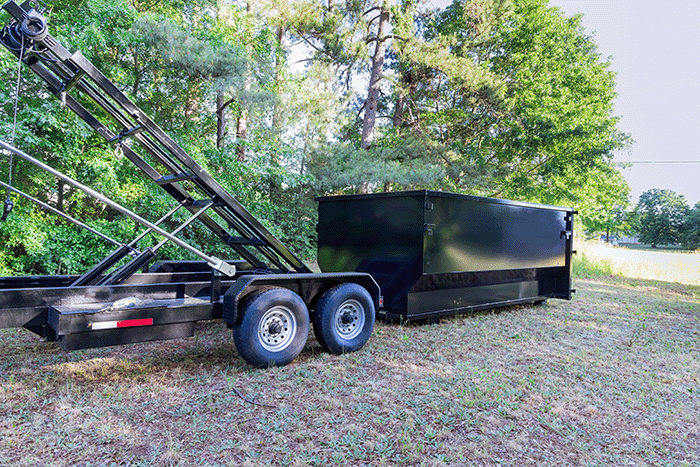Partner with Downstream

When it comes to fast-paced construction projects, tenant improvements, or office build-outs, waste builds up fast—and if it’s not handled efficiently, it can bog down your timeline, frustrate building management, and create unnecessary hazards. That’s where dumpster rental becomes an essential part of your logistics planning. Whether you’re gutting an office, remodeling a retail space, or managing a clean-out before a renovation, renting a dumpster isn’t just convenient—it’s a strategic move that saves time, money, and headaches. In this blog, we’ll break down the benefits of dumpster rental, explore when and why you need one, and walk through best practices that can keep your site clean and your crew moving.

Construction debris is unavoidable. From drywall scraps and flooring waste to packaging, cabinetry, and broken pallets, every trade leaves something behind. Without a designated place to dump that waste, you’ll find it collecting in corners, cluttering egress paths, or forcing extra labor just to keep the jobsite clean.
When you’re coordinating a tight construction schedule, dumpster delays can impact multiple trades. Renting the right type and size of dumpster helps ensure your project runs on time.
A central location for all debris means less back-and-forth, fewer dump runs, and more time spent doing actual construction. Dumpsters make cleanup more efficient across all phases of the project—from demo to punch list.
You know exactly what you’re paying for with a dumpster rental. Haul-off and tipping fees are typically bundled into a flat rate, which makes it easier to estimate costs and avoid surprises. Compare that to hiring day labor or running loads to the dump yourself—it adds up fast.
As noted in this For Construction Pros article on waste reduction, efficient waste management plays a significant role in controlling jobsite costs and sustainability.
OSHA and general contractors emphasize the importance of a clean jobsite for both safety and productivity. Loose debris is one of the most common tripping hazards, and piled-up waste can block emergency exits or fire suppression systems. Having a dumpster on-site ensures trash has a place to go—immediately.
In tenant improvement jobs, especially within office towers or managed properties, building management often requires a designated debris plan. Some even require contractors to submit a waste management plan or reserve dock access for scheduled hauls. Renting a dumpster from a provider familiar with these logistics ensures you stay compliant with property rules.
For more on managing logistics in shared buildings, see our post on Coordinating with Building Management During Tenant Construction.
Reputable dumpster providers will sort and divert materials when possible—cardboard, metal, and clean fill often get sent to recyclers instead of landfills. According to the EPA’s guide to construction waste, up to 90% of some construction waste streams can be reused or recycled. Working with the right rental partner ensures you’re doing your part to divert waste and meet any sustainability goals on your project.

Not all dumpsters are created equal, and choosing the wrong one can create more problems than it solves. Consider these common types and sizes:
When selecting a dumpster, be sure to factor in:
Coordinating dumpsters doesn’t have to be a hassle. With Downstream, you can compare rates from multiple vendors in your area, check availability, and order the right dumpster for your job without a dozen phone calls. We connect you to reliable providers who understand construction timelines, property management expectations, and what it takes to keep a jobsite running smoothly.
Need it hauled the same day? Need to avoid weekend pickup fees? Need a lowboy on one job and a lockable 20-yard on another? Downstream has you covered.
Dumpster rental is more than just a box for trash—it’s a core part of keeping your tenant improvement or commercial job running on schedule and within budget. From compliance and cleanliness to cost control and crew productivity, the benefits are clear.
Plan ahead, rent smart, and make sure you’re working with partners who understand the demands of construction. That’s where Downstream shines—giving you the flexibility, transparency, and control to get your job done right.
-min.webp)
Quis nostrud exercitation ullamco laboris nisi ut aliquip ex ea commodo consequat. Duis aute irure dolor in voluptate.
